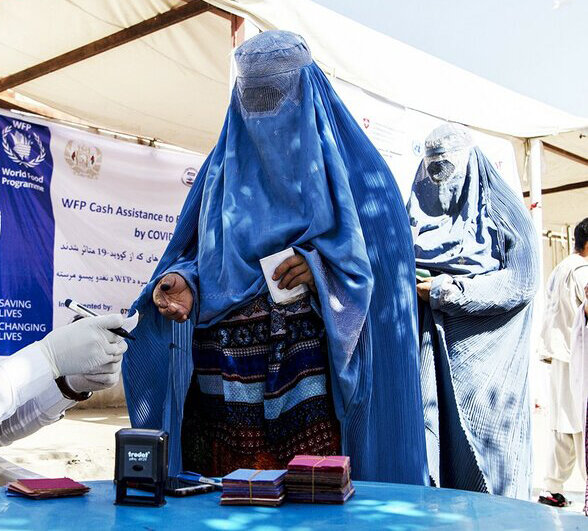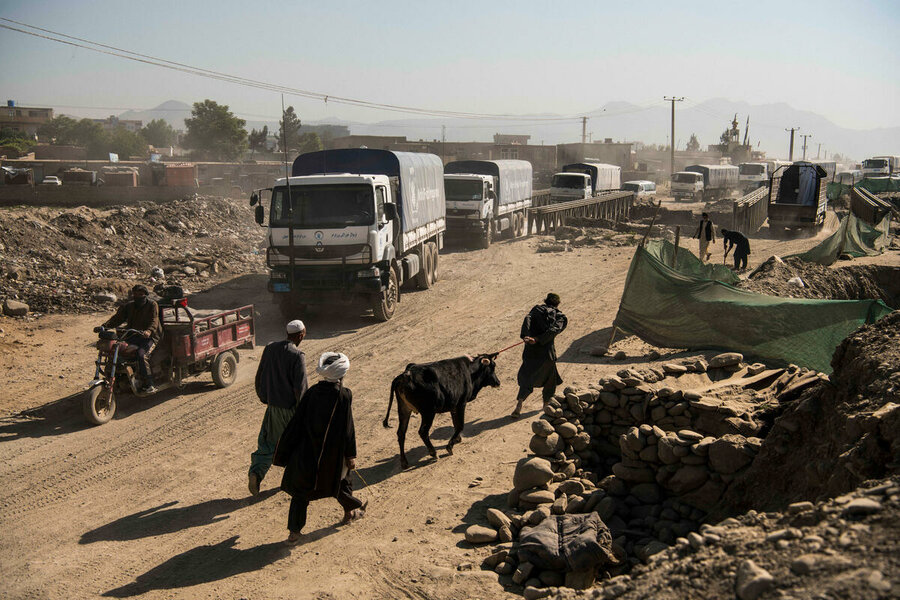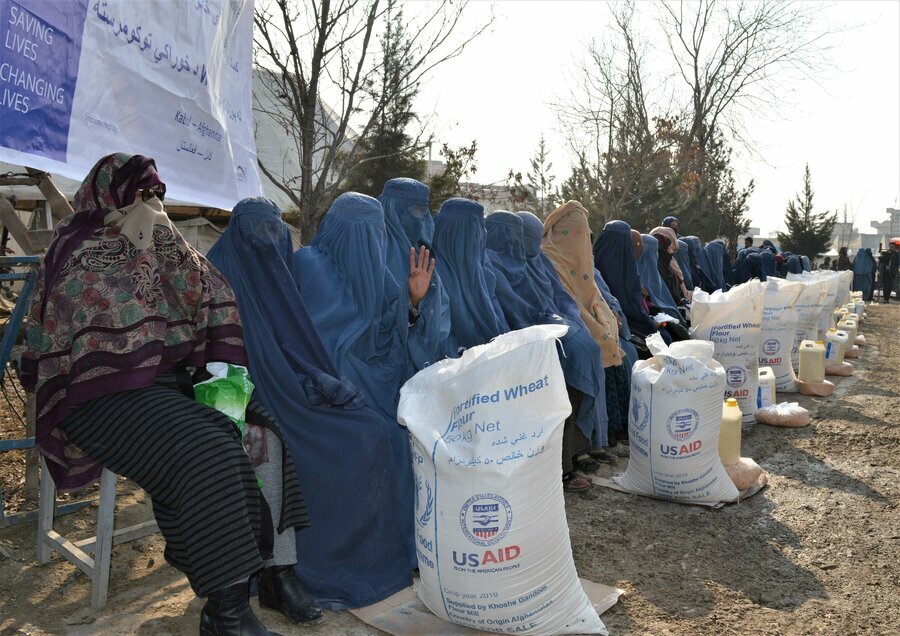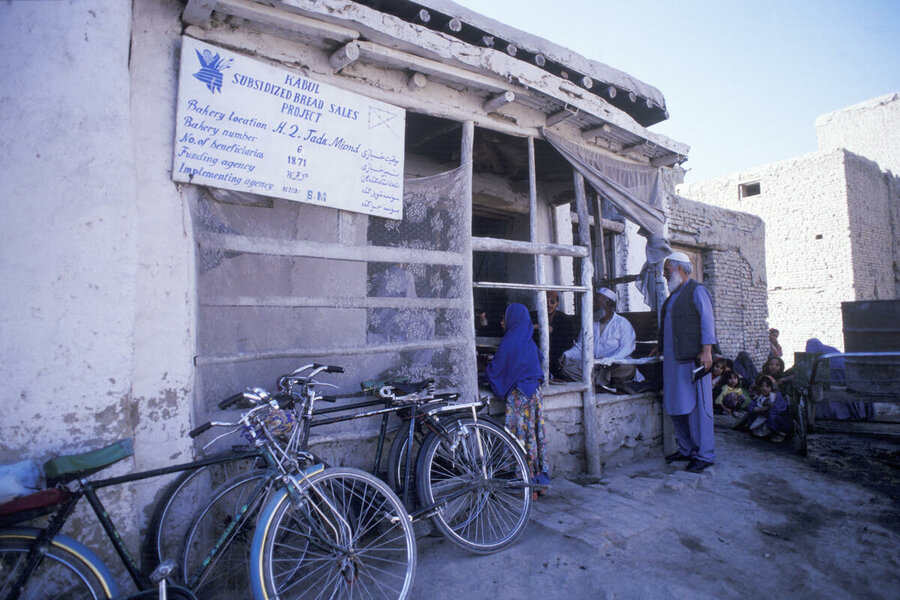Afghanistan: WFP Committed to Averting Humanitarian Crisis as One in Three People go Hungry

With 14 million people going hungry, the United Nations World Food Programme (WFP) is focused on delivering.
The U.N. World Food Programme remains dedicated to maintaining its guiding principles of humanity, impartiality, neutrality and operational independence as it seeks to serve the people of Afghanistan – a country where one in three are going hungry.

U.N. World Food Programme armored vehicles negotiate a narrow road in Badakhshan province’s Arghanj Shwah district in in May.
That’s 14 million people, including 2 million children who are severely hungry.

A U.N. World Food Programme cash-assistance distribution point in Kabul in September 2020.
The combined effects of drought and the coronavirus pandemic, on top of years of conflict, look set to worsen the food security situation.
The U.N. World Food Programme and its partners are committed to continuing humanitarian operations while maintaining the safety and security of staff and the people the organization serves.
Despite security and logistics challenges, the U.N. World Food Programme maintains access to most of the country including areas experiencing active fighting.

Built with U.N. World Food Programme support, the ‘Unity Canal’ irrigates farmland for the communities in Takhar’s Kalafgan district and Badakhshan’s Keshm districts.

U.N. World Food Programme trucks set off from Kabul in May to take wheat flour, to the provinces of Khost, Wardak and Ghazni.
In the first six months of this year, the U.N. World Food Programme delivered food and nutrition assistance to 5.5 million people, including people newly displaced by fighting.
On Monday (August 15) in Kabul, the U.N. World Food Programme started assistance to more than 1,000 families – 7,000 people – displaced by conflict as its mobile teams registered more people in desperate need around the city.

Food assistance is ever more critical in the winter in Afghanistan.
The U.N. World Food Programme has been in Afghanistan for more than 60 years. Our trucks continue to be on the road. Our teams are on the ground working with partners to get food to where it’s needed.
“The Afghan people need our support now more than ever. The U.N. World Food Programme is committed to stay and deliver as long as conditions will allow,” the organization said.

A U.N. World Food Programme-supported bakery in Kabul in 1998.
To continue operations, and get assistance to people in desperate need, the U.N. World Food Programme requires $200 million to get through to the end of the year.
The organization expects to reach 14 million people by the end of the year.




